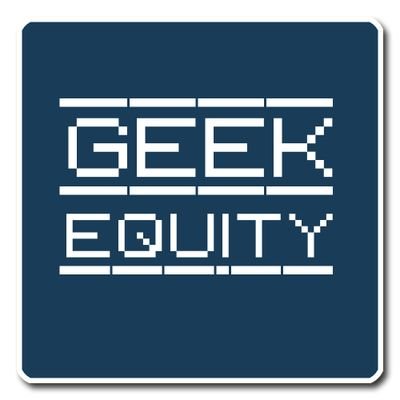Responses to the Corona Virus are seeing massive government interventions – bailing out and nationalising vital industries like air and rail travel and requisitioning empty houses and hotels to provide homes for all, among other things. There are calls across the political spectrum to provide people with a universal basic income. Many on the left are arguing that the idea that capitalism offers any solutions to our problems should finally die. But it won’t because of our deeply-held belief that only free markets can offer us salvation. In this post, Heather Mendick explores how the idea of the geek sustains our faith in markets.
What is market populism?
Market populism, as defined by Thomas Frank, is the belief that markets are not just the best but the sole guarantee of freedom and democracy. By participating in markets, we make our collective wishes known and through the market’s “invisible hand”, businesses are compelled to respond to we the people. “Markets are where we are most fully human; markets are where we show we have a soul” (p.xiii). In this dominant way of understanding the world, it is those people who reject markets, whether climate activists or trade unionists, who are brainwashed robots. Market populism, while ostensibly anti-elite, is deeply elitist – in markets it is not one person one vote but one dollar one vote.
Thomas Frank wrote about market populism 20 years ago. He identified the role of the internet and technology in sustaining the pace of economic growth, citing the market populist belief that “the physics of the Information Age is a sure bet”. However, the dotcom bubble burst and beyond that we had the 2008 global financial crisis and now the Corona Virus. Yet the belief in free markets remains as powerful as ever. Geeks are central to that.
The geek shall inherit the earth
We are no longer sold the market populist line that our direct participation in markets is the source of freedom and democracy. Instead we’re told that these come from our online participation. So the story goes, Twitter and Facebook have democratised public space and before them Apple and Microsoft stood up to the big corporations to ensure that the masses have access to the power of technology. This story persists undisturbed by how Apple and Microsoft are now big corporations and Twitter and Facebook are monopolies controlling which voices and messages are amplified and which are silenced.
The figures who head up these companies – geek celebrities Jack Dorsey and Mark Zuckerberg, Steve Jobs and Bill Gates – have been hailed as contemporary prophets along with other tech entrepreneurs like Elon Musk. When Elon Musk sacked staff via text message, some of them went on Twitter to praise him. Although Bill and Melinda Gates led an expensive experiment that has permanently damaged the US public school system, their foundation is still seen as a positive force in the world. Tax-avoiding Amazon boss Jeff Bezos has set up a crowdfunder to raise money to pay their workers who have Corona, yet its online services are one of the pandemic’s winners. There are powerful economic forces working to sustain the popularity of these geek entrepreneurs and their businesses but we should not neglect the role of culture.
From “dickless” regulators to “privatising world peace”
Ghostbusters in 1984 was one of the first films to depict the now commonplace transformation of scientists and technologists from isolated geeks to celebrated heroes. Throughout the film, the dynamism and effectiveness of private enterprise is contrasted to a dull and inefficient public sector. Our team of psychic investigators begin working in a university. When sacked, Bill Murray’s character warns: “You don’t know what it’s like out there! I’ve worked in the private sector. They expect results”. Later we see the government Environmental Protection Agency imposing regulations that endanger New York by unleashing trapped ghosts, with the main EPA investigator disparaged by the Ghosbusters as “dickless”.
This contrast is part of the DNA of geek narratives in which the tech genius-hero has to go up against the system usually represented by the government whether its Matthew Broderick’s plucky hacker in War Games or socially awkward innovator Zuckerberg in biopic The Social Network.
We also see this in superhero films which, as I show elsewhere, combine geekiness with more traditional macho images of masculinity. Within the Marvel Cinematic Universe, the Avengers are called before a senate committee to answer questions and are asked to sign up to United Nations oversight. However, the case for accountability always collapses when a film’s final battle begins and it’s clear that any such restrictions will prevent the Avengers from saving the world. The case is further undermined by Hydra infiltrating every level of government so that signing up to UN or US oversight means giving the power of decision making to Nazis. As Iron Man’s Tony Stark boasts before an audience of politicians and journalists: “I’m your nuclear deterrent. I have successfully privatised world peace. I will serve this nation at the pleasure of myself”.
Is anything changing?
Left populist movements across the world are definitely challenging the logic of the market and the Corona Virus could help us see how the technology we need to tackle this crisis won’t come from geeky mavericks but from what Mariana Mazzucato calls the entrepreneurial state.
And in the post-Trump era films – like 2018’s Sorry to Bother You to 2020’s The Invisible Man – are more likely than in the past to depict tech entrepreneurs as manipulative and violent sociopaths. In our research, we will continue tracing how cinematic depictions of geeks shift over the coming years and how these relate to wider society.

